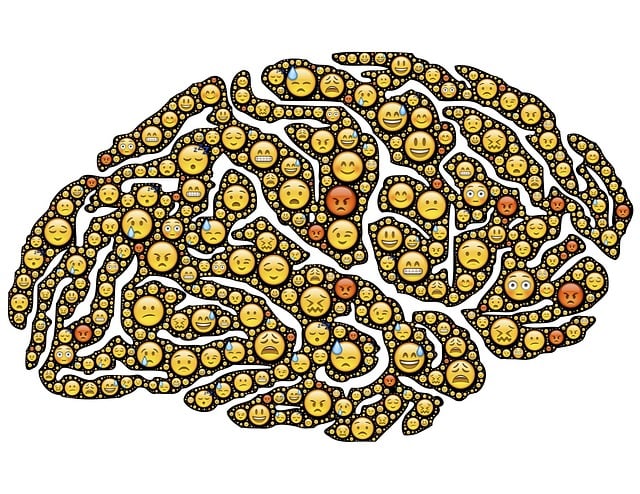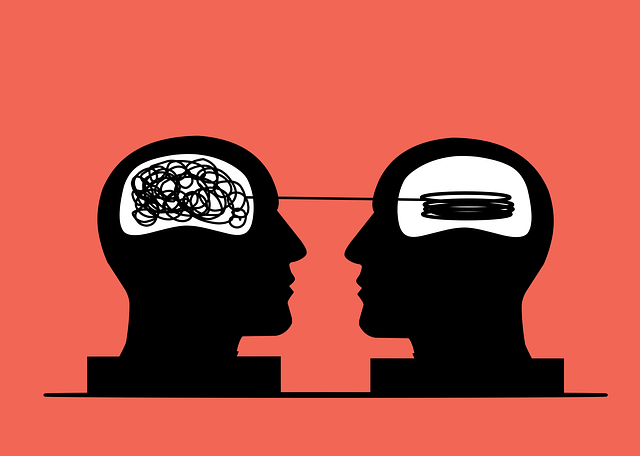Longmont Couples Counseling Therapy prioritizes mental wellness through comprehensive self-assessment tools that identify early warning signs of depression and anxiety. These tools, incorporating mindfulness and emotional intelligence practices, empower individuals to manage their psychological well-being proactively. Effective assessments cater to diverse needs, capture symptoms and relationship dynamics, and guide crisis interventions. Integrating these tools into clinical practice improves mental health awareness, enhances treatment outcomes, and reduces stigma through community outreach programs.
In today’s fast-paced world, mental wellness self-assessment tools play a pivotal role in addressing psychological health. This article explores the development of such tools, focusing on their significance in the context of Longmont Couples Counseling Therapy. We delve into key components for comprehensive assessments, design principles for user-friendly interfaces, and strategies to seamlessly integrate these tools into clinical practice. Understanding individual needs is crucial for effective therapy, making self-assessment an indispensable resource for mental health professionals.
- Understanding the Need for Self-Assessment Tools in Mental Health
- Key Components of a Comprehensive Mental Wellness Self-Assessment
- Designing Effective and User-Friendly Assessment Tools for Longmont Couples Counseling Therapy
- Integrating Self-Assessment into Clinical Practice: Strategies for Success
Understanding the Need for Self-Assessment Tools in Mental Health

In today’s fast-paced world, mental wellness is a paramount concern, and recognizing the importance of self-assessment tools in Longmont Couples Counseling Therapy cannot be overstated. These tools empower individuals to proactively manage their psychological well-being before it escalates into more severe issues like depression or anxiety disorders. By providing accessible means for self-reflection and evaluation, they enable people to identify early warning signs of mental health struggles and take timely action. This proactive approach is a game-changer in prevention strategies, especially considering the rising rates of depression worldwide.
Self-assessment tools play a pivotal role in fostering emotional resilience and promoting healthy coping mechanisms. Incorporating practices such as mindfulness meditation and cultivating emotional intelligence can be integrated into these assessments to guide individuals toward better mental health management. Regular use of these tools can help people gain profound insights into their emotional states, thought patterns, and behaviors, thereby facilitating personal growth and improved relationships, both personally and professionally.
Key Components of a Comprehensive Mental Wellness Self-Assessment

A comprehensive mental wellness self-assessment tool should incorporate several key components to effectively gauge and improve an individual’s overall psychological well-being. Firstly, it must include a detailed questionnaire that explores various aspects of mental health, such as mood, anxiety levels, stress management strategies, and coping mechanisms. This section should be designed to capture both overt symptoms and subtle underlying issues, allowing for a nuanced understanding of the person’s mental state. For instance, including questions about sleep patterns, appetite changes, social interactions, and hobbies can provide valuable insights beyond traditional assessment methods.
Additionally, integrating a risk assessment component tailored for mental health professionals is essential. This involves evaluating potential hazards within one’s personal or professional life that could negatively impact mental wellness, such as heavy work loads, lack of self-care practices, or exposure to traumatic events. Incorporating stress reduction methods and promoting healthy coping strategies through the tool can empower individuals to proactively manage their mental health. Longmont Couples Counseling Therapy, for example, often employs risk management planning as a component of their counseling approach, enabling clients to identify risks and develop personalized strategies to mitigate them.
Designing Effective and User-Friendly Assessment Tools for Longmont Couples Counseling Therapy

Designing effective and user-friendly assessment tools is paramount for Longmont Couples Counseling Therapy to meet the diverse needs of its clients. These tools play a pivotal role in understanding the mental wellness landscape of individuals and couples seeking therapy. By integrating relevant keywords like mental wellness and self-esteem improvement, assessors can create comprehensive questionnaires that capture not just symptoms but also underlying factors contributing to relationship dynamics.
A well-structured assessment should guide therapists through crisis intervention strategies, enabling them to offer immediate guidance and support tailored to each couple’s unique situation. User-friendliness is equally vital; clear, concise language and a user-intuitive interface ensure clients feel at ease during the self-assessment process, promoting honest and accurate responses. This, in turn, facilitates more effective treatment planning for Longmont Couples Counseling Therapy professionals.
Integrating Self-Assessment into Clinical Practice: Strategies for Success

Integrating self-assessment tools into clinical practice can significantly enhance mental health awareness and treatment outcomes, especially when tailored to individual needs. Longmont Couples Counseling Therapy, for instance, has recognized the value of these assessments in guiding personalized therapy sessions. By incorporating self-evaluation methods, therapists can gain valuable insights into clients’ perceptions and experiences, enabling them to create more effective treatment plans.
To ensure success, clinical practices should prioritize educating both therapists and clients about the process. This involves training therapists to administer and interpret self-assessments while teaching clients how to reflect on their mental health status honestly. Community outreach programs can play a vital role in promoting mental health awareness, encouraging individuals to participate in regular self-assessments, and fostering open discussions about mental illness, thereby reducing the stigma associated with seeking help.
Mental wellness self-assessment tools play a pivotal role in empowering individuals, particularly those seeking therapy, such as in Longmont Couples Counseling Therapy. By providing accessible and user-friendly mechanisms for self-reflection and evaluation, these tools bridge the gap between client and therapist, fostering more informed decision-making and tailored treatment plans. Integrating comprehensive self-assessments into clinical practice enhances the therapeutic process, enabling professionals to offer more effective support and ultimately improve mental health outcomes.













